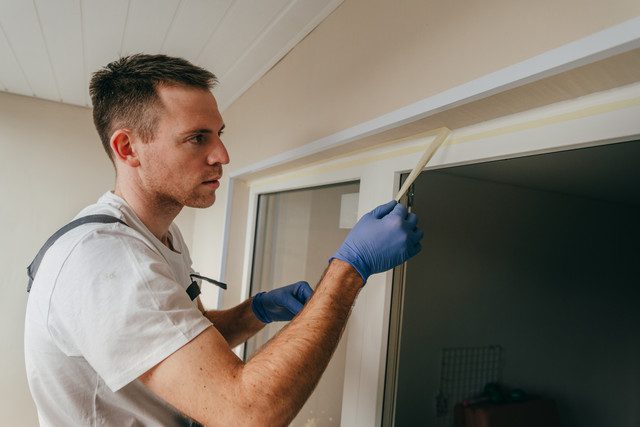Silicone sealants have become invaluable across different industries because of their unparalleled versatility, ability to withstand environmental conditions, and longevity. From construction and automotive to electronics, silicone sealant manufacturing plays a crucial role in producing high-quality materials that preserve structural integrity and ensure functionality. This article provides an overview of the entire silicone sealant manufacturing process from raw material selection to curing outlining components such as quality control checks, industry analyses, trends, and highlights Dely Technology—a leading manufacturer.
Understanding the Silicone Sealant Industry
Widely valued for their distinctive features, silicone sealants possess the capability to create flexible bonds which are waterproof as well as resistant to various weather conditions. This adaptability has made them indispensable throughout numerous sectors.
Key Applications and Importance
-
Construction: Used for sealing joints and gaps to prevent water and air intrusion.
-
Automotive: Primary gasket application: sealing components from fluid/a air intrusion.
-
Electronics: Guards delicate parts against moisture, dust, mechanical impact.
Given these features silicone sealants fulfill a critical role in both industrial and commercial spheres.
Raw Material Preparation
The accuracy of a silicone sealant starts from its raw materials. A well formulated silicone sealant consists of:
Core Components
Silicone Polymers: The material which provides flexibility, thermal stability, weather resistance, and serves as the backbone of the polymer.
Fillers: Silica and calcium carbonate are examples of fillers which boost mechanical strength, consistency and resistance to shrinkage.
Additives: Alterations can be made to improve adhesion, speed of curing, or retention of color through custom tailored additives.
All these components must be carefully selected and undergo performance testing to guarantee repeatability in output.
Formulation and Mixing
After preparing the raw ingredients, manufacturers blend them to form a homogeneous silicone base.
Mixing Techniques
Advanced industrial mixers are used to thoroughly combine the polymers, fillers, and additives. This step requires precision to eliminate air bubbles and ensure uniformity, which directly impacts sealant performance.
Role of Fillers in Performance
Fillers are more than just bulking agents — they play a critical role in modifying the sealant’s behavior.
Performance Enhancement
-
Silica: Improves tensile strength and wear resistance.
-
Calcium Carbonate: Offers cost-efficiency and helps balance flow properties.
-
Tailored Use: Depending on the end-use application, fillers can be optimized for flexibility, strength, or workability.
Additives for Custom Applications
Additives make it possible to customize sealants to meet a wide range of functional and aesthetic requirements.
Common Additive Types
-
Adhesion Promoters: Ensure strong bonding with diverse substrates like glass, metal, or plastic.
-
Pigments: Provide color customization for visual identification or branding.
-
Curing Agents: Speed up or control the curing process based on application needs.
Proper formulation of additives allows sealant manufacturers to address niche market demands effectively.

Cross-Linking: Strength Through Chemistry
What is Cross-Linking?
Cross-linking is a chemical reaction that forms bonds between polymer chains, creating a 3D network. This network gives silicone sealants their elasticity, strength, and resistance to high temperatures.
-
Influencing factors include curing agents, humidity, and temperature.
-
Efficient cross-linking ensures long-term performance under environmental stress.
Curing: Finalizing the Sealant
The curing stage transforms the liquid or paste sealant into its final elastic, durable form.
Curing Methods
-
Moisture Cure: Common in construction, cures upon exposure to atmospheric moisture.
-
Heat Cure: Used in industrial applications where rapid and uniform curing is needed.
-
UV Cure: Ideal for transparent or specialty sealants with fast processing needs.
Curing time depends on the formulation and environmental conditions.
Quality Control and Testing
Rigorous testing is essential to ensure each batch of sealant meets industry standards.
Key Performance Tests
-
Tensile Strength
-
Elongation
-
Adhesion
-
Weathering and Aging Resistance
These metrics assure customers of long-term reliability and functionality in varied environments.
Environmental and Workplace Safety
Manufacturers are increasingly focused on minimizing environmental impact and ensuring workplace safety.
Sustainability Practices
-
Recycling production waste
-
Using low-VOC and bio-based materials
-
Improving energy efficiency
Worker Safety
-
Compliance with safety regulations (e.g., OSHA, REACH)
-
Personal protective equipment (PPE) and training
-
Ventilation and spill control measures
Future Trends in Silicone Sealant Manufacturing
The silicone sealant industry continues to evolve, with innovation and sustainability leading the way.
Innovations Ahead
-
Advanced Polymers: Higher performance at lower costs.
-
Smart Additives: Enable self-healing, UV resistance, or antimicrobial properties.
-
Automation: Enhanced precision and production efficiency.
Sustainability Focus
-
Bio-based silicones
-
Energy-efficient curing
-
Recyclable or biodegradable packaging
These initiatives are not only environmentally responsible but also market differentiators for forward-thinking manufacturers.
Spotlight: Dely Technology
Hangzhou Dely Technology Co., Ltd., founded in 2002, is a global leader in high-performance adhesive solutions. Integrating R&D, production, and sales, Dely provides specialized bonding products to over 100 countries, serving industries such as:
-
Transportation
-
Electronics
-
Construction
-
Renewable Energy
Dely’s innovation-driven culture and customer-centric approach position it as a trusted partner and leading silicone sealant supplier worldwide.
Conclusion
Silicone sealant manufacturing is a sophisticated process that blends chemistry, engineering, and innovation. From raw material selection to curing, every step contributes to the final product’s performance. With rising demand for tailored, sustainable solutions, manufacturers like Dely Technology are at the forefront, shaping the industry’s future.
Contact Us
If you have any questions or need more information about our products and services, feel free to reach out to us through the following contact details:
Phone/WhatsAPP:
+86 15853657921
Email:
cy971109@gamil.com
Address:
No.198 Yishan Road,Dongcheng Street,Linqu County,Weifang City,Shandong Province,China
Customer Service Hours:
Available 24 hours a day, 7 days a week







